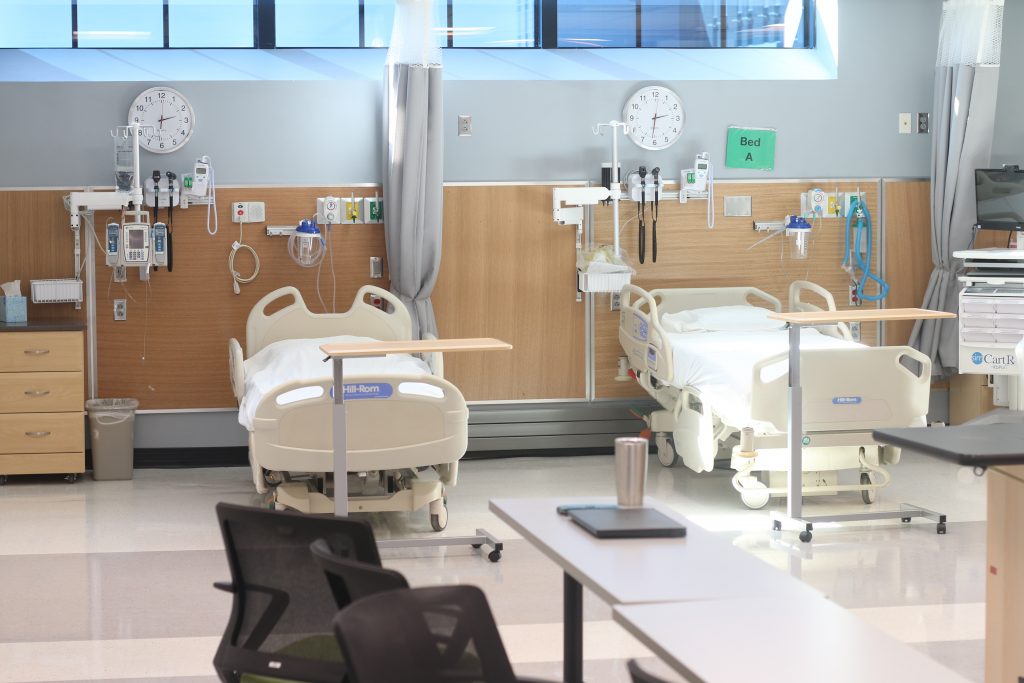The Decker College of Nursing and Health Sciences has officially announced that it will now be offering a new minor in speech and hearing science for all students at Binghamton University.
The new minor aims to better prepare students for graduate programs to become speech and language pathologists (SLPs). It consists of six courses, and all students can enroll regardless of whether students are in the minor program. Some of the courses include an introduction to communication disorders, anatomy and physiology, plus phonetics and linguistics. Rodney Gabel, founder of the program and one of the future professors expected to teach within the program, expanded on the details of the new courses.
“Right now, because it’s a new minor we do not know how many students will be interested,” Gabel said. “I do know that there are a number of students across programs who aspire and have gone on to graduate programs to become [SLPs]. Right now I have capped the courses at 40. I will open them up to more if there is more interest. We want to keep the class size somewhat manageable because we know that students enjoy smaller classes.”
The courses within the minor are known as foundational courses. These courses provide interested students with baseline knowledge to prepare for a related graduate program. Additionally, these courses are also some of the prerequisite coursework needed to attend a graduate program in speech pathology. Other prerequisite coursework include courses in social science, natural science, physical science, lifespan development and statistics. Gabel said this program gives students the opportunity to fulfill all of the requirements for a graduate program while attending BU for their undergraduate studies.
“These courses allow students to matriculate directly into a graduate program,” Gabel said. “Otherwise, students generally have to do a bridge year where they take these courses after they graduate and then apply to a graduate program. Or many students in the past have taken classes over the summer, which is not ideal.”
These courses can be taken by anyone in any major to explore their interest in the field. There is a wide range of topics covered to prepare students to pursue licensure to become an SLP, according to BU’s website. Katriella Weingarten, an undeclared sophomore in Harpur College of Arts and Sciences, is looking forward to taking some of the courses within the minor to explore the field.
“Although I am not sure that I want to become a [SLP], I find the job endearing and would like to explore it,” Weingarten said. “The classes look really interesting and applicable to multiple careers, so I am very excited to take a few of them.”
The courses within the minor will range from a scientific perspective on speech and language to a societal one, according to Gabel. This will include learning about the biology behind communication disorders and their societal consequences.
“From a societal and cultural point of view, we will look at what the impact of having a communication disorder is on the individual and the family,” Gabel said “And [students will] explore the effect of stereotyping, stigma and societal views. The other courses study the sound system, issues related to hearing and speech science.”
SLPs take on a number of roles in society. They aid and assist students to use speech effectively and, therefore, have an easier time learning in school. Moreover, many SLPs work with adults who acquire diseases that affect their speaking abilities, like Parkinson’s. SLPs work in a number of different places with varying age groups, such as nursing homes, elementary schools and hospitals. Adina Horowitz, a sophomore majoring in human development, is excited to explore this career because of how important they believe SLPs are to society.
“[SLPs] make a huge impact on society especially in regards to their role with children,” Horowitz wrote. “I remember at school students used to tease the kid in my class who stuttered. It is so important to recognize the societal effects and the stigma that comes with having a communications disorder. I am so happy that BU is starting this program. I know that many students, myself included, are interested in this field because of how important it is. SLPs really help kids to not only learn more efficiently in school but also to get rid of some of these unfortunate consequences.”
Any student interested in joining the minor program can enroll in any of the courses. Applications were due by April 15 for the fall semester and will be due by November 15 for the spring semester. Additionally, some of the course options will be available during this upcoming summer session and for the fall semester.



